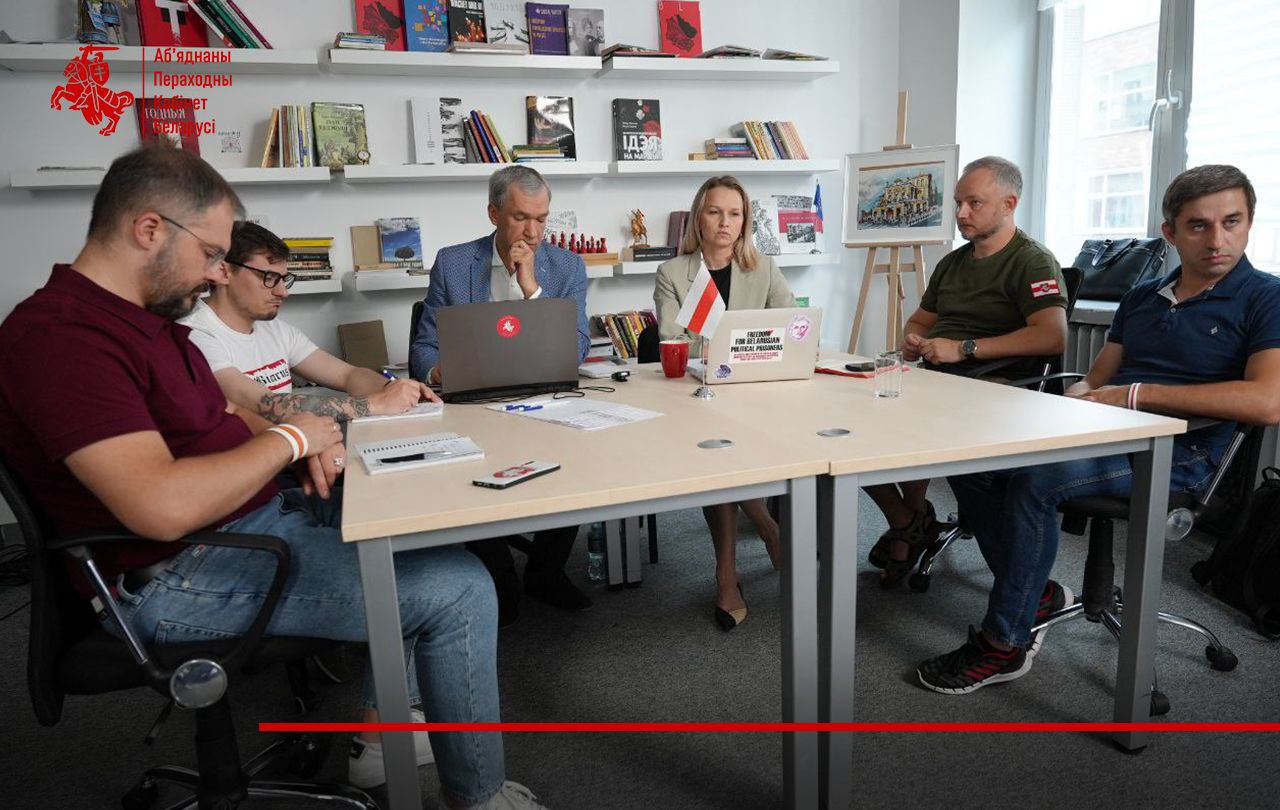Prigozhin’s Mutiny: Impact and Responses of Belarusian Democratic Forces
 The situation has gotten better
The situation has gotten better

The “military mutiny” of PMC “Wagner” led by Yevgeny Prigozhin gave rise to hopes for quick changes and the collapse of the regime in Belarus among the democratic forces in exile. The United Transitional Cabinet (UTC) created an operational situational headquarters and called on all Belarusian democratic forces and volunteers from various units in Ukraine to consolidate. Separate calls for coordinated actions were noted by the Kalinouski Regiment and the movement “Free Belarus” by Zianon Pazniak. The end of the “mutiny” mediated by Lukashenka brought down the wave of optimism and returned the democratic forces to the discussion of the strategic agenda.
Belarusian democratic leader in exile Sviatlana Tsikhanouskaya recorded a video message in which she stated that now is the best chance to expel the Russian military from Belarus. It contains appeals to the Belarusian army, diplomats, and security officials. The leader of the democratic forces emphasized that the primary task for Belarusians at present is to safeguard the security and sovereignty of the country. At the same time, she urged to remain vigilant and focus on the main goals – support for Ukraine and the liberation of Belarus.
Against the background of the events in Russia, the representative for defense and national security of the United Transitional Cabinet (UTC) Valery Sakhashchyk also spoke of a “historic chance” for Belarus and called on the Belarusian military to unite in order to “save the Motherland.”
During an urgent meeting of the United Transitional Cabinet, a crucial decision was reached to establish an operational situational headquarters. The Cabinet issued a call to all Belarusian democratic organizations and Belarusian volunteers from diverse units engaged in the conflict in Ukraine, urging them to unite with the headquarters. The primary aim was to collaboratively develop a comprehensive action plan that will effectively safeguard the sovereignty of Belarus.
The UTC also announced the denunciation of political and military agreements with Russia and the country’s withdrawal from the CSTO, the EAEU and the CIS, the recognition of the decisions of the Lukashenka government as legally invalid and appealed to the Belarusian people and the Belarusian military. The UTC urged to prevent the participation of the Belarusian military in the armed conflict on the territory of Russia. In light of this, the Cabinet issued a firm demand to the State Border Committee of the Republic of Belarus to promptly close the border between Belarus and Russia. Additionally, they called upon the Ministry of Defense of the Republic of Belarus to facilitate the withdrawal of Russian troops from Belarus and halt any preparations for the deployment of nuclear weapons on Belarusian soil. The cabinet called Belarusians to join the Pieramoha plan and prepare for active actions to restore law and order in the country.
The “Free Belarus” movement and Zianon Pazniak also made a special statement. He called Belarusians to make preparations for taking to the streets and engaging in armed struggle, as well as to seize administrative buildings, establish self-governing bodies, assume control over enterprises, organize units, and arrange border trips to facilitate the entry of Belarusian volunteers into the country.
The Kalinouski Regiment released a statement regarding the recent events in Russia and emphasized that the Belarusian military will soon face a critical decision: whether to follow unlawful orders or uphold their oath. The soldiers of the regiment earnestly urged the Belarusian people to be prepared to join the self-defense units when the need arises.
The resolution of the crisis involving the “military rebellion” of the PMC Wagner and the subsequent agreements reached between Yevgeny Prigozhin, the Kremlin, and Lukashenka have dampened the wave of optimism regarding immediate negative repercussions for the Belarusian regime. Tsikhanouskaya asserted that Lukashenka has once again demonstrated that he is merely a puppet of Vladimir Putin.
Given the prevailing circumstances, the democratic forces find themselves compelled to revisit the strategic agenda. To this end, Tsikhanouskaya previously put forth a coordinated strategy for Belarus during her address to the ambassadors of Council of Europe member countries at a political committee meeting. The proposed strategy entails intensifying sanctions to exert pressure on the regime and ensuring that individuals within the regime are held accountable for their involvement in crimes against humanity and acts of aggression.
Sviatlana Tsikhanouskaya also decided to hold hearings at the Coordination Council before August 1 in order to get acquainted with the reports and agree on the candidacies of representatives of the UTC.
Valery Sakhashchyk, the head of the National Security Department of the United Transitional Cabinet (UTC), has devoted his efforts to the enhancement of the security aspect. In a previous announcement, he revealed the establishment of the 1st independent airborne assault company, comprised of Belarusian volunteers and former security officials, within the Ukrainian airborne assault forces. This company is stationed in the Donetsk region and serves as the reserve unit for the commander of a separate assault brigade.
Alina Koushyk, the UTC representative for national revival, made a working trip to Berlin. Several meetings were held. Their topics were, among other things, support for Belarusian culture and opposition to state propaganda.
Uladzimir Astapenka, the Deputy Representative for Foreign Affairs of the United Transitional Cabinet (UTC) and the Head of the Democratic Belarus Mission in Brussels, engaged in consultations with Veronica Dukendorf, the Political Director of the Luxembourg Ministry of Foreign Affairs.
Subscribe to our newsletter




Situation in Belarus
Constitutional referendum: main consequences


 Video
Video
How to count the political prisoners: are the new criteria needed?


 Video
Video
Paternalism In Decline, Belarusian Euroscepticism, And The Influence Of Russia


 Video
Video












